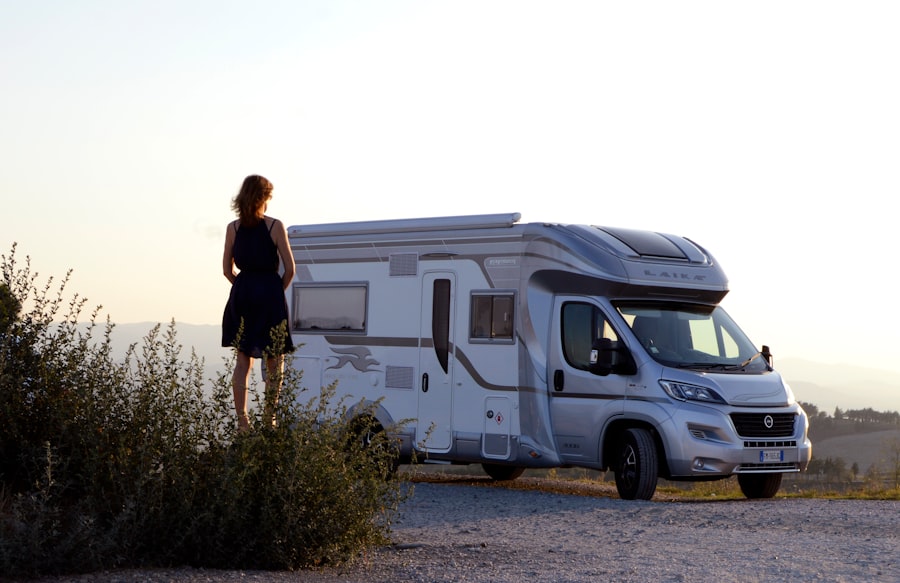In recent years, mobile homes have experienced a significant resurgence in popularity, becoming a viable housing option for many individuals and families. This trend can be attributed to various factors, including the increasing cost of traditional housing, the desire for flexibility in living arrangements, and a growing awareness of alternative lifestyles. As urban areas become more congested and housing prices soar, mobile homes offer an appealing solution that combines affordability with mobility.
The modern mobile home is no longer the outdated trailer of the past; it has evolved into a stylish and functional living space that meets the needs of contemporary society. The rise of mobile homes is also closely linked to changing societal values. Many people are now prioritizing experiences over material possessions, leading to a shift towards minimalism and simpler living.
Mobile homes align perfectly with this ethos, allowing residents to downsize their living spaces while still enjoying the comforts of home. Additionally, the flexibility that mobile homes provide enables individuals to relocate easily, whether for job opportunities, lifestyle changes, or personal preferences. This adaptability is particularly appealing to younger generations who value mobility and the ability to explore new environments without being tied down by traditional homeownership.
Key Takeaways
- Mobile homes are becoming increasingly popular as a modern living option due to their affordability and flexibility.
- New mobile homes feature innovative designs and eco-friendly materials that enhance comfort and sustainability.
- Living in mobile home communities offers social benefits and a sense of belonging among residents.
- Mobile homes provide a cost-effective housing solution with lower maintenance and utility expenses.
- Understanding legal regulations and proper maintenance is essential for mobile home ownership and longevity.
Advantages of Living in a Mobile Home
Living in a mobile home comes with a myriad of advantages that cater to diverse lifestyles and preferences. One of the most significant benefits is affordability. Mobile homes typically cost significantly less than traditional houses, making them an attractive option for first-time buyers, retirees, or anyone looking to reduce their housing expenses.
The lower initial investment allows residents to allocate their financial resources toward other priorities, such as travel, education, or savings. Furthermore, the cost of utilities and maintenance for mobile homes is often lower than that of conventional homes, contributing to long-term financial savings. Another advantage of mobile home living is the sense of community it fosters.
Many mobile home parks are designed to create a close-knit environment where residents can connect with one another. This communal aspect can be particularly beneficial for those who may feel isolated in more traditional housing settings. Social events, shared amenities, and communal spaces encourage interaction among neighbors, fostering friendships and support networks that enhance the overall living experience.
For families, this sense of community can provide a safe and nurturing environment for children to grow up in.
Design and Features of New Mobile Homes

The design and features of modern mobile homes have undergone a remarkable transformation over the years. Today’s mobile homes are often indistinguishable from traditional houses in terms of aesthetics and functionality. Manufacturers have embraced innovative design principles, incorporating open floor plans, high ceilings, and large windows that create a sense of spaciousness and light.
Many new models also feature energy-efficient appliances and smart home technology, allowing residents to enjoy modern conveniences while minimizing their environmental impact. Customization options have also expanded significantly, enabling buyers to personalize their mobile homes according to their tastes and needs. From choosing floor plans and finishes to selecting exterior colors and landscaping options, prospective homeowners can create a space that truly reflects their personality.
Additionally, many manufacturers offer eco-friendly materials and sustainable building practices, ensuring that new mobile homes are not only stylish but also environmentally responsible. This focus on design and sustainability has helped elevate the perception of mobile homes in the housing market.
Sustainability and Eco-Friendly Aspects of Mobile Homes
| Aspect | Metric | Description | Typical Value/Range |
|---|---|---|---|
| Energy Efficiency | Average Energy Consumption | Amount of energy used per square foot annually | 10-20 kWh/sq ft/year |
| Material Usage | Recycled Content | Percentage of recycled materials used in construction | 20-40% |
| Water Conservation | Water Usage Reduction | Reduction in water consumption compared to traditional homes | 30-50% |
| Waste Reduction | Construction Waste Diverted from Landfill | Percentage of construction waste recycled or reused | 70-90% |
| Carbon Footprint | Embodied Carbon | CO2 emissions from materials and construction per square foot | 15-25 kg CO2/sq ft |
| Insulation | R-Value | Thermal resistance of insulation used | R-20 to R-40 |
| Renewable Energy Integration | Solar Panel Capacity | Typical solar panel system size installed on mobile homes | 1-3 kW |
| Indoor Air Quality | VOC Emissions | Volatile organic compounds emitted from building materials | Low to Very Low |
| Land Use | Footprint Size | Average land area occupied by mobile home | 400-800 sq ft |
| Mobility & Reusability | Relocation Frequency | Number of times a mobile home can be relocated without major reconstruction | 3-5 times |
Sustainability is becoming an increasingly important consideration in all aspects of life, including housing. Mobile homes have emerged as a surprisingly eco-friendly option for those seeking to minimize their environmental footprint. Many modern mobile homes are built with sustainable materials and energy-efficient systems that reduce energy consumption and waste.
For instance, manufacturers often use recycled materials in construction and incorporate energy-efficient windows and insulation to enhance thermal performance. Moreover, the smaller footprint of mobile homes inherently contributes to sustainability. With less space to heat or cool, residents can significantly reduce their energy usage compared to larger traditional homes.
Additionally, many mobile home parks are designed with green spaces and communal gardens that promote biodiversity and encourage residents to engage with nature. This connection to the environment not only enhances the quality of life for residents but also fosters a sense of responsibility toward preserving natural resources.
Cost-Effectiveness and Affordability of Mobile Homes
The cost-effectiveness of mobile homes is one of their most compelling attributes. The initial purchase price is typically much lower than that of conventional homes, making them accessible to a broader range of buyers. For example, while the median price for a single-family home in many urban areas can exceed several hundred thousand dollars, a new mobile home can often be purchased for a fraction of that cost.
This affordability allows individuals and families to achieve homeownership without incurring crippling debt or sacrificing their financial stability. In addition to lower purchase prices, mobile homes often come with reduced ongoing costs. Property taxes on mobile homes are generally lower than those on traditional houses, which can lead to significant savings over time.
Furthermore, many mobile home parks offer amenities such as maintenance services, which can alleviate the burden of upkeep for residents. The combination of lower initial costs and ongoing savings makes mobile homes an attractive option for those looking to live within their means while still enjoying the benefits of homeownership.
Community Living and Mobile Home Parks

Mobile home parks play a crucial role in fostering community living among residents. These parks are often designed with shared spaces such as playgrounds, clubhouses, and recreational areas that encourage social interaction and collaboration among neighbors. This communal aspect can be particularly appealing for families with children or retirees seeking companionship in their later years.
The close-knit environment often found in mobile home parks can lead to lasting friendships and support systems that enhance the overall quality of life. Moreover, many mobile home parks host regular events and activities that bring residents together. From potlucks and holiday celebrations to fitness classes and game nights, these gatherings create opportunities for residents to connect on a personal level.
This sense of belonging can be especially valuable for those who may feel isolated in more traditional housing situations. The community-oriented nature of mobile home parks not only enriches individual lives but also contributes to a greater sense of stability and security within the neighborhood.
Legal and Regulatory Considerations for Mobile Home Owners
While mobile home ownership offers numerous benefits, it is essential for prospective buyers to be aware of the legal and regulatory considerations involved in this type of housing. One critical aspect is understanding the difference between owning a mobile home and owning the land it sits on. Many mobile home owners lease their lots within parks rather than owning the land outright, which can impact property rights and responsibilities.
It is crucial for buyers to thoroughly review lease agreements and understand any restrictions or regulations imposed by park management. Additionally, zoning laws can vary significantly from one area to another, affecting where mobile homes can be placed or parked. Some municipalities may have specific regulations regarding the installation or modification of mobile homes, which could influence a buyer’s decision-making process.
It is advisable for potential owners to conduct thorough research on local zoning ordinances and consult with legal professionals if necessary to ensure compliance with all applicable laws.
Tips for Choosing and Maintaining a New Mobile Home
When selecting a new mobile home, prospective buyers should consider several factors to ensure they make an informed decision that meets their needs. First and foremost, it is essential to assess personal requirements such as size, layout, and desired features. Buyers should take into account their lifestyle preferences—whether they prioritize open spaces for entertaining or need additional bedrooms for family members—and choose a model that aligns with those priorities.
Maintenance is another critical aspect of mobile home ownership that should not be overlooked. Regular upkeep is essential for preserving the integrity and longevity of the home. Homeowners should familiarize themselves with routine maintenance tasks such as checking seals around windows and doors, inspecting plumbing systems for leaks, and ensuring that heating and cooling systems are functioning efficiently.
Additionally, establishing a relationship with local service providers who specialize in mobile home repairs can be beneficial for addressing any issues that may arise over time. In conclusion, the rise of mobile homes reflects broader societal shifts towards affordability, sustainability, and community living. With their modern designs, cost-effectiveness, and eco-friendly features, mobile homes present an attractive alternative to traditional housing options while fostering connections among residents in vibrant communities.



